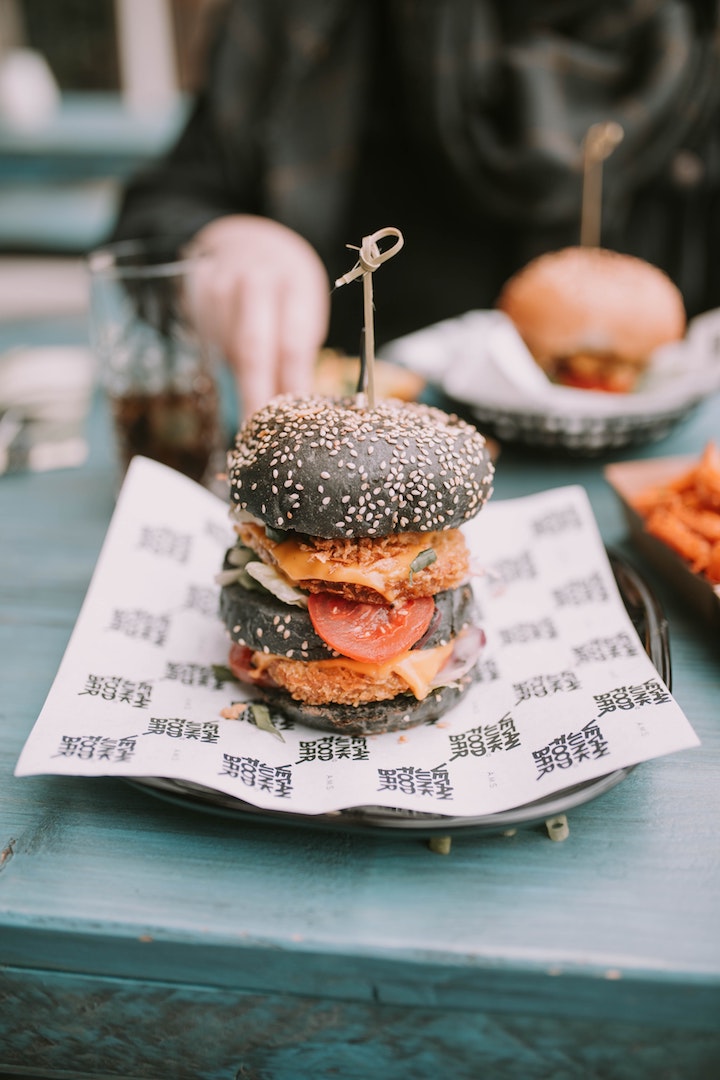
As an entrepreneur time isn’t always on your side. Even when you know you’re not making the best health and food choices sometimes it’s just easier to grab quick bites than it is to go grocery shopping, meal prep or cook. Yet, the problem with convenience food is that it provide little to no nutritional value, includes excessive amounts of sodium, sugar, and saturated fats and causes cravings. As a result, you slowly kill your productivity.
What sugar cravings are telling you
Glucose is a form of sugar and the primary source of energy for every cell in your body. According to Harvard Medical School, because your brain is so rich in nerve cells, or neurons, it is the most energy-demanding organ, using one-half of all the sugar energy in the body. Brain functions such as thinking, memory, and learning are closely linked to glucose levels and how efficiently the brain uses this fuel source.
When you eat balanced meals or snacks that contain fruit, vegetables and whole grains, fiber slows down carbohydrate digestion and glucose absorption. The problem is that convenience foods are full of refined sugars, which break down too quickly and cause your blood sugar to spike. In the short term, you experience a burst of energy and it feels like a good choice. But the effects are temporary.

Your body wants to maintain a mid-range blood sugar level. After years of sugar spikes, your body starts overestimating how much it needs to balance things out and removes too much sugar from your system. Extreme highs are followed by extreme lows as your body tries to unsuccessfully find a balance.
Is a blood sugar imbalance killing your productivity?
When your blood sugar is low, your brain is effectively being starved. It can’t function properly, and as a result your productivity suffers. You’ll feel fatigued, get headaches, lose concentration and may become irritable. To get out of this danger zone, your brain sends panic signals – cue your cravings. The message is simple: eat sugar, feel better.
Sugar and fatty food cravings are hard to resist because when you’re struggling for energy, your body is hard-wired to find a solution as quickly as possible. Eating these foods gives you a swift boost, and hits the pleasure sensors in the brain: everything about them is rewarding. But the highs and lows cause a lot of additional stress on your body. Over time they change the way you regulate hormones and lead to long-term health issues including weight gain, sleep problems and anxious or aggressive behaviors.
Take control of your cravings
Controlling your cravings doesn’t mean you have to cut out sugar or processed foods completely. That’s incredibly difficult to do. Try these simple, workable strategies to stop your cravings and quickly improve your productivity.
Plan ahead
If you’re reading this then awareness isn’t your problem. Instead you need an action plan! Organize your week to have healthy food to hand. This could mean meal-prepping in advance, packing snacks, or even making sure you’ve scouted local takeaways with healthy options.

Eat more often
Low blood sugar = low self control. When you’re already hungry or low on energy you’re more likely to reach for junk food. Make it easy for yourself: don’t skip meals. Eat regularly throughout the day. Everyone is different, but if you can stick to a balanced breakfast, lunch and dinner with two healthy snacks in between, you’ll find it easy to stay energized and productive.
Stay hydrated
Your body needs water to process glucose and turn it into energy it can use. If you aren’t processing the sugar, your body sends out signals for more, even though it’s actually water you need. Staying hydrated will improve your concentration, energy and focus. This is probably the single easiest step you can take to feel a difference.

Get some sleep
While you probably know you should get more sleep, you may not be aware that exhaustion can trigger your appetite. Research shows lack of sleep makes you fat. “‘We have very substantial research that shows if you shorten or disturb sleep, you increase your appetite for high-calorie dense foods,’ says Charles Samuels, MD, medical director of the Centre for Sleep and Human Performance in Calgary, Alberta. ‘On a simplistic level, your appetite changes.'” Get more sleep and watch your productivity skyrocket.
Manage your stress levels
Stress is a big factor when it comes to food cravings: if you feel stressed, then eating can help you feel better. Eating sugary, fatty foods can make you feel better in the short-term but could negatively impact your health and your business in the long-term. Next time you reach for a treat, check in and ask yourself, “Am I really hungry or just trying to soothe my stress?” Maybe there’s something better you can do: take a walk, call someone for support, or stop for a break.
Controlling your cravings might not happen overnight, but if you follow one or two of these strategies consistently, you will start to see a difference more quickly than you think.
Kezia Thomas helps women in business get back in control of their relationship with food to stop it affecting their confidence and their energy. That way they can stay on top of their businesses and enjoy living life. She’s a health coach who believes in finding realistic ways to look and feel better – because she understands that life happens and that chocolate is delicious. Connect with @keziatho on Twitter.
© YFS Magazine. All Rights Reserved. Copying prohibited. All material is protected by U.S. and international copyright laws. Unauthorized reproduction or distribution of this material is prohibited. Sharing of this material under Attribution-NonCommercial-NoDerivatives 4.0 International terms, listed here, is permitted.







